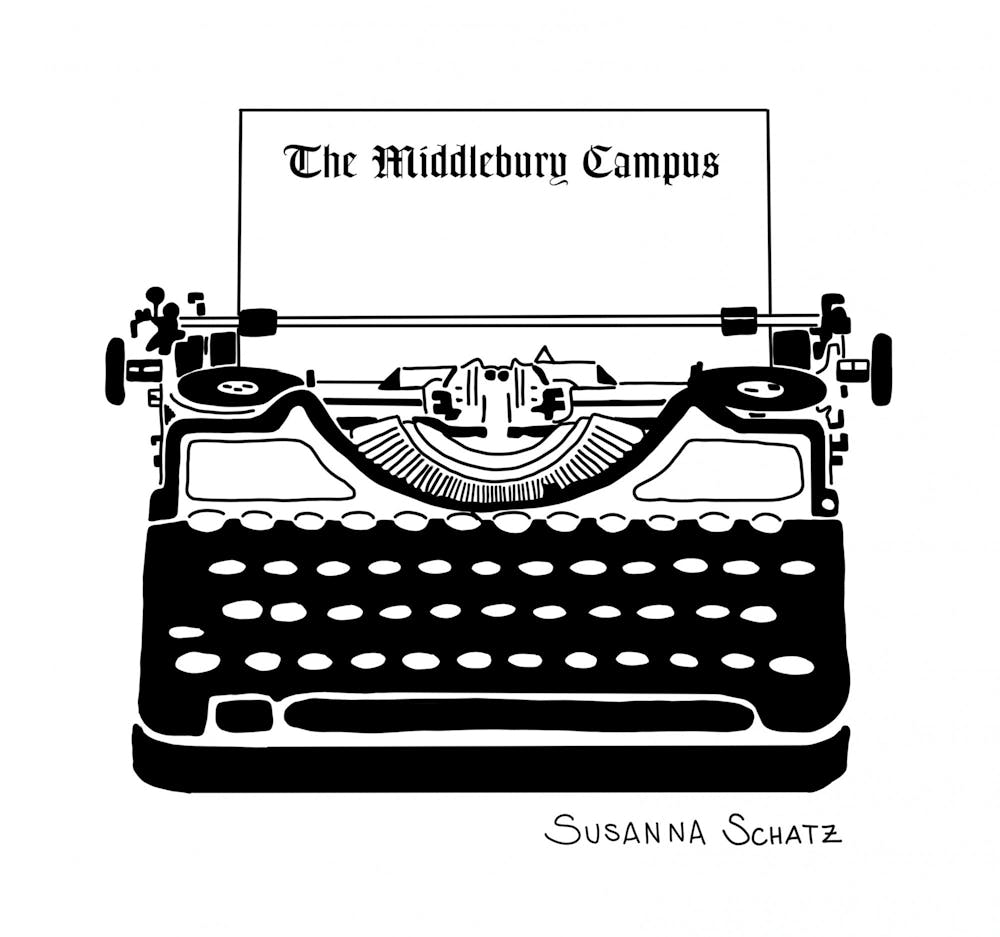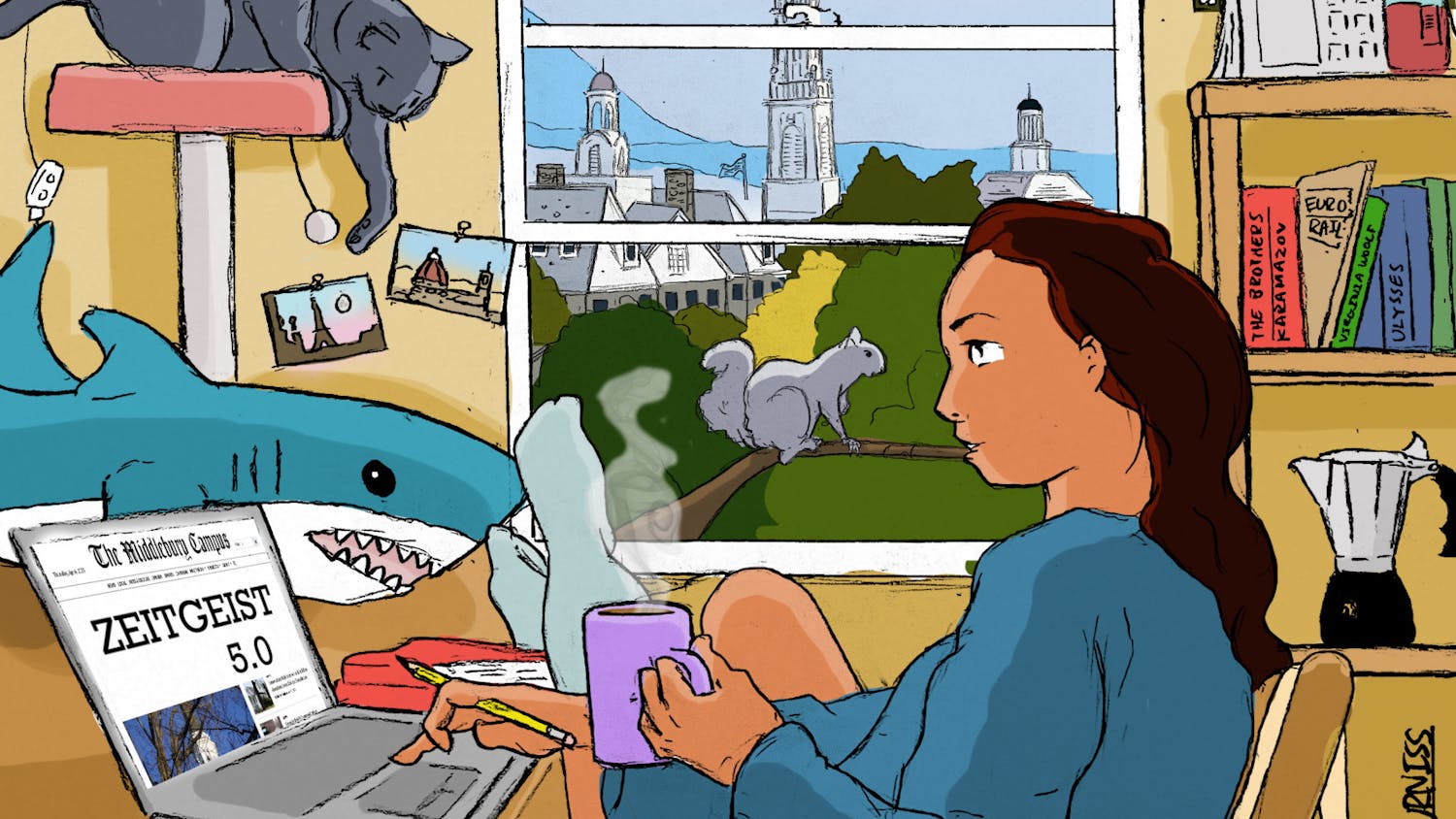For this week’s editorial, the graduating seniors of the Editorial Board reflected on how Middlebury has changed –– for better and worse –– since they enrolled in fall 2019. Our non-seniors offered their perspectives on how these changes have shaped their college experience thus far. Of course, the college has developed in ways that were inevitable due to the pandemic’s disruption of both Middlebury and the world at large. As we finish up a year without pandemic restrictions, we must reflect on how students’ priorities have changed and the college has failed to keep up with the changing times.
We’ll give you the good news first. Since we started four years ago, the college has become more diverse. Not only in terms of admitting more BIPOC, first-generation and low-income students, but also by celebrating the diversity of culture on campus through robust programming such as a variety of events in honor of Black History Month. Likewise, there are now more cultural dinners, and the Anderson Freeman Resource Center (AFC) — Middlebury’s intercultural center — has expanded its programming. But while the college has made progress in improving diversity in admissions, this is only successful if we provide the resources to support those students when they get to Middlebury.
When the class of 2023 applied, the college required standardized test scores. Since the start of the Covid-19 pandemic, Middlebury has become test-optional, a policy we hope sticks around. Doing well on a standardized test requires resources that aren’t equally available to all applicants. Continuing to make reporting test scores optional provides for a more equitable admissions process.
Additionally, since 2019, we’ve noticed a change in the types of assignments given by professors. To the relief of many students, there has been increased academic flexibility, with fewer scheduled in-person exams and more take-home finals, and professors have become more understanding with deadlines. Zoom has also become a convenient option for office hours or when you can’t be physically present in class. However, Zoom’s widespread usage has led some professors to expect that you should still attend class virtually when you are sick, which prevents students from resting and regaining their health.
We’ve also noticed a shift in party culture at Middlebury recently. Prior to the pandemic, students could wander around Atwater on a weekend night and almost always find a party that would let them in — this is no longer socially acceptable or encouraged. This might be because Covid-19 restrictions encouraged students to form tight groups with their close contacts, making the social scene more intentional. The college also eliminated super bloc housing, which may have contributed to a decline in large open parties. A group of friends that live together voluntarily are more likely to host events open to many students at a place like KDR than a house full of people who randomly end up living together.
Now for the bad things. Since the onset of the pandemic, we’ve noticed what feels like a significant decrease in students’ engagement on campus, specifically in extracurriculars. We lost so much social time during the pandemic that it is natural to want to make up for lost time. We were also forced to modify or put many of our activities and hobbies on hold, and we may not yet be back to fully engaging with these important aspects of college life. While we understand why students are less engaged with school organizations, it is unfortunate that the student body has become somewhat disconnected from stimulating facets of student life such as student government, volunteer organizations and performing arts groups. These groups were once integral to student life here, but in recent years board members have observed them struggling to recruit members or sustain long term engagement.
Take the recent SGA elections. During the current seniors’ first year, these elections attracted more engagement. The race was highly competitive, and presidential candidates put a great deal of effort into their campaigns, from creating informational websites to holding “office hours” for students to ask questions about their platforms. These days, many students can’t name the candidates running for SGA positions. We hope that as we continue to adjust to life after pandemic restrictions, students will bring new life to the organizations and projects that are essential to building community and affecting change here.
We have also observed that the housing system has deteriorated on the whole. Though the old Commons system had its downsides, there has not been an administrative effort to replace it with widespread community-building infrastructure within the housing system. At the same time, deans are working with a larger number of students — one dean is now responsible for the entire junior and senior classes.
Furthermore, Covid-19 and over-enrollment have made it more difficult for students to get the housing they desire. Many of us were placed randomly in Ross suites our first year, but those living arrangements are now hard to come by for upperclassmen. Another sign of this trend is that the college still plans to house students at the Inn on the Green next fall, and increasing numbers of students are moving off-campus for the fear that the summer housing draw will not work out in their favor. Students moving off campus has increased tensions with town residents and undermined the close residential nature of our community.
Off-campus living also affects staffing: When students live off campus, they take already scarce housing options away from faculty and staff who may have otherwise lived there. When affordable housing is so hard to come by, potential employees are more inclined to take their talents elsewhere.
The most severe change since our matriculation in 2019 may be understaffing at the college. It has become normal for the dining halls to use compostable plates on the weekends because they don’t have enough dishwashers — that rarely, if ever, occurred when we first started at Middlebury. Wages that used to essentially match the inflation rate have fallen far behind it following a temporary across the board wage freeze during the pandemic and again with wage compression brought about by the skill matrix system. Understaffing on campus affects the way students view the community, and the consistent destruction of campus spaces suggests that our student body thinks they are the only group that occupies these hills and halls.
This spring, many students have been frustrated by the Grille’s limited hours. These shortened hours, however, tie back to understaffing and a difficulty attracting employees to the Grille. In addition to compensation issues, former workers at the Grille have specifically cited as a reason for their departure the trend of disrespectful, drunk students causing chaos in the space after a night out. While the Grille used to be a place for students to congregate and meet new people after a crowded Atwater party, we must acknowledge that its changed role relates to student disrespect of the space, and, in turn, understaffing.
Naturally, we tend to romanticize the past. But what is clear to both our graduating seniors and younger students is that essential pieces of college life — our dedication to Middlebury’s organizations, the campus social scene, the places we live and the support for the staff we rely on — are no longer what they once were. We do not say all this to encourage students and administrators to look backwards to how Middlebury used to be. Rather, we need to think about how to move forward and incorporate aspects of previous campus life to discover what Middlebury can look like. While students have some agency to change how we engage with the college, the administration must recognize its responsibility to pay its employees fair, competitive wages and to find a sustainable solution to limited housing. As we look to next fall, we hope our community will take on these challenges — after all, this is our school, and we should all be invested in its future.




